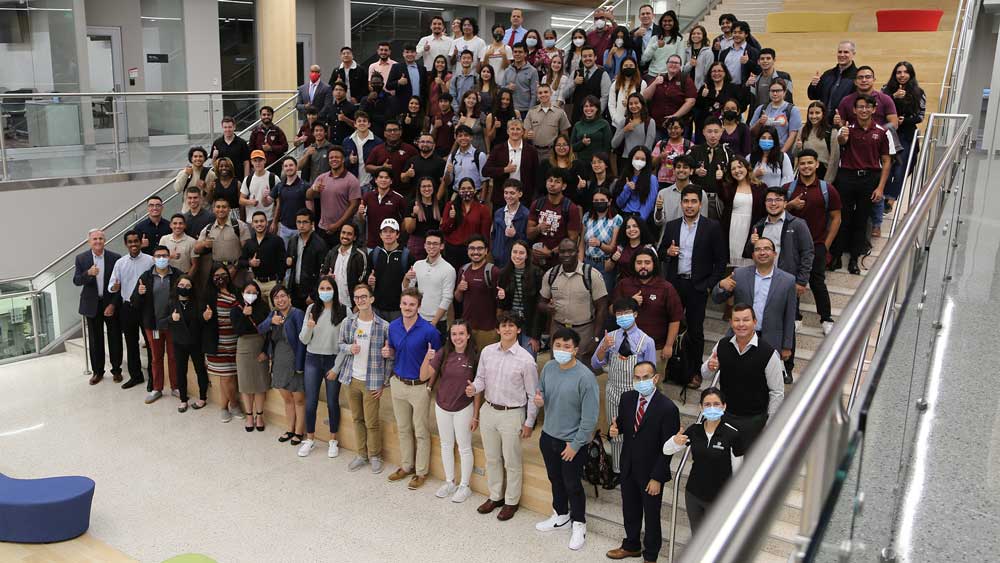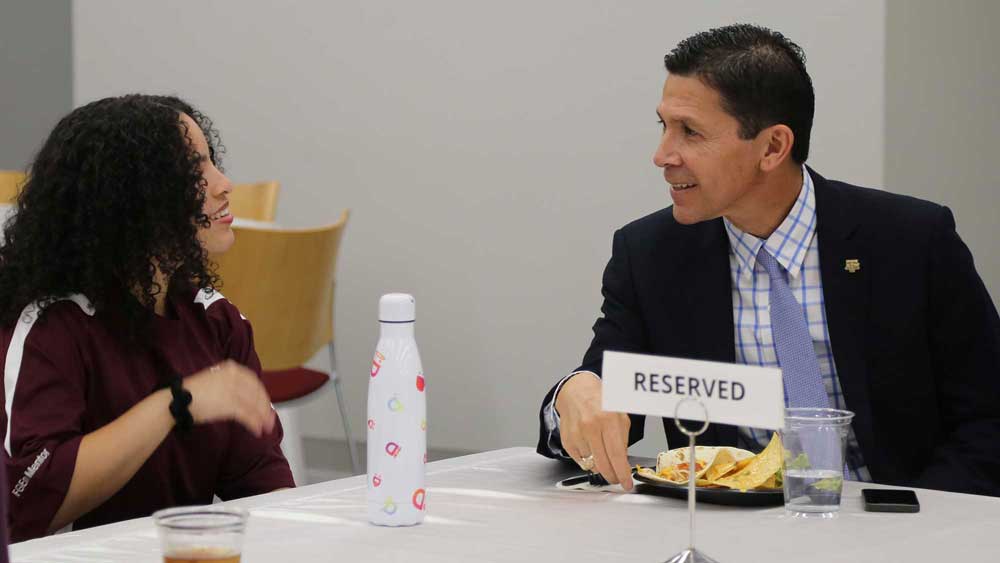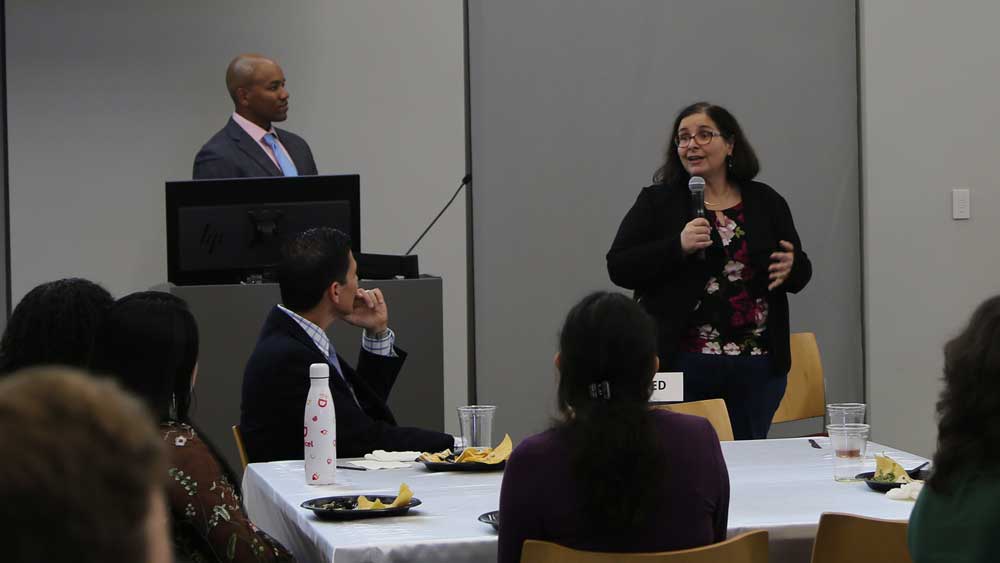
On Nov. 8, the College of Engineering at Texas A&M University held a banquet in honor of its first-generation students, staff and faculty. With nearly 3,400 first-generation undergraduate students, over 19% of undergraduate enrollment, college leadership wanted to send a message: Texas A&M is a place of belonging and opportunity, and there are resources to ensure student success, like the First-Generation Engineering (FGEn) Students Mentoring Program.
"To meet the college and university’s retention and graduation goals, we need to invest in the success of every student,” said Dr. Michael Johnson, associate dean for inclusion and faculty success. “FGEn is an investment to ensure that our first-generation students meet their potential and are as successful as they can possibly be.”

In his address, Dr. John E. Hurtado, interim vice chancellor and dean of engineering, delivered a message of support and encouragement as one first-generation student to those in the room.
“Each college student has a unique story and way forward,” said Hurtado. “This college is proud to partner with each of you as you continue toward your degree and into your career. Our incoming students span a spectrum of past opportunities and preparedness. For me, all along the way, mentorship was key.”
The primary goal of the FGEn program is to enhance Texas A&M first-generation engineering students’ educational and social experiences on campus. It is about leveraging university and community resources to provide a sense of community to FGEn students and help them with their personal and professional goals. It’s founded on the basic principle of impactful mentorship.
“At every one of these branch points in my life, I had a mentor who helped show me the way,” said Hurtado. “My encouraging point to you tonight is to seek out mentorship. It can really take you a long way. Thankfully, here in the College of Engineering, we have a community, we have a support program that can help first-generation students in so many ways. We’re here to make this a better place for everyone.”

The celebration included a historical reference to the significance of the date. On Nov. 8, 56 years ago, the Higher Education Act of 1965 was an important piece of history that leveled the playing field that was heavily weighted against Americans from underrepresented backgrounds. The Act has since enabled universities and institutions to grow programming and support for groups of students, including first-generation students.
Mentees aren’t the only students to benefit from the FGEn program, which was conveyed during the evening’s faculty panel. Staff and faculty mentors shared how much they have learned from their interactions with those they mentored.
“Being a part of the FGEn program has been very meaningful to me in many ways,” said Dr. Bimal Nepal, FGEn program director. “Serving as a mentor means you are able to positively impact a life of one student, which means one family, which potentially means one community if that family can inspire other community members to send their kids to college. Likewise, to see my mentees progress through and become capable of navigating and overcoming their academic, social and professional challenges is very rewarding.”
The FGEn program has been shown to make a significant impact on the success of first-generation students in the College of Engineering. Staff, faculty and students are encouraged to get involved through the First-Generation Engineering Students mentoring program.